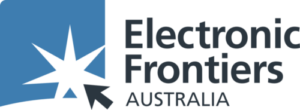The Australian government has announced plans to criminalise “doxxing” after the personal details, including names, images, professions and social media accounts, of hundreds of people were published online.
Electronic Frontiers Australia fears that any doxxing law will become a tool for suppressing protest, rather than a shield for those engaging in protest.
“EFA welcomes the fact that the government has acknowledged the value of internet privacy, but we urge caution and forbearance in their plans to criminalise speech,” said EFA Chair John Pane.
EFA believes in the right to internet anonymity. It is a vital protection for people who cannot be publicly associated with their speech — because of who their employer is, out of fear of reprisal from their government, or because they are hiding from a violent domestic partner. Doxxing people in these positions can cause great harm. That said, EFA is wary about any attempts to criminalise doxxing.
Doxxing is an ill-defined term. Very often, we see it used to describe any manner of public criticism of a named individual. The criminal law is a poor vehicle for defining with clarity and precision the differences between acceptable and unacceptable speech in this arena. And the police are poorly equipped to exercise judgement regarding the acceptability of political speech.
In Australia, the Commonwealth Criminal Code Act of 1995 already makes it unlawful to use a carriage service to menace, harass, or cause offence. It also addresses the incitement of violence. Many states have additional laws covering threats. What we lack — as survivors of family violence and stalking know only too well — is law enforcement with the will to exercise the powers they already have.
“Clear guidance from the Attorney General on applying existing laws effectively can provide our community with a more immediate and practical solution than the creation of new, ambiguous laws,” said EFA Chair John Pane.
For interviews/media requests contact: John Pane – Chair of Electronic Frontiers Australia (media@efa.org.au)
(Image credit: iStock)
Related Items:
- Inside Australia’s Knee-Jerk Doxxing Legislation 2 April 2024
- Submission Doxxing and Privacy Reforms - 1 April 2024 2 April 2024
- EFA Chair's Address: Meet the New Board 21 November 2023
- EFA Welcomes Government Decision To Reject Online… 31 August 2023
- OAIC Receives Minor Resourcing Boost: Good Start But… 4 May 2023
